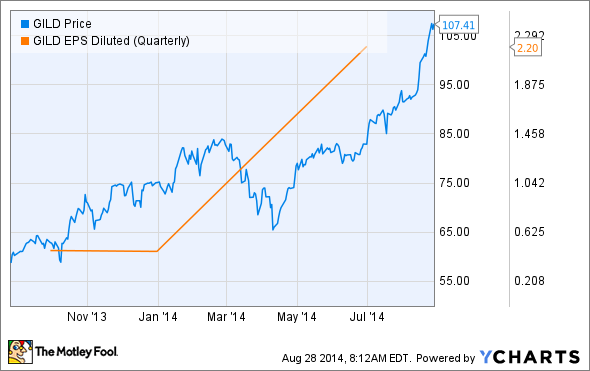
Source: Wikimedia commons
Before investing a single penny, you should have some type of overarching strategy or philosophy as a guide. Most commonly, the average investor turns to Warren Buffett in the hope of cracking Wall Street's secret code. Even people that are highly successful in their own right, like Floyd Mayweather Jr., have been known to seek counsel with the "Oracle from Omaha."
The Hungarian-born billionaire, philanthropist, and political activist George Soros has also offered up his sage advice on investing in various ways to the public. But despite the proven effectiveness of his strategy, Soros isn't perhaps appreciated by the average investors as much as Buffett or his mentor Benjamin Graham.
My view is that the complexity of Soros' message has been its own worst enemy on the public dissemination front. With that in mind, here are three simple ways to capture the heart of Soros' investing genius.
Develop an investing thesis based on the scientific method.
Perhaps one of Soros' best lessons for investors to heed is his application of the scientific method to investing. Soros uses a number of resources to generate a "hypothesis" for how an equity should behave in certain market conditions. In short, your investing thesis should be testable.
A good retrospective example would be the bull thesis for investing in Gilead Sciences (GILD -0.56%) ahead of the launch for Sovaldi — the company's aptly nicknamed "terminator" hepatitis C drug.
Going into the drug's much-anticipated launch, bulls posited that Sovaldi would increase annual revenue by double-digits, which would drive share price higher in the coming months. As the chart below shows, this hypothesis turned out to be overwhelmingly correct, i.e., share price has increased primarily as a result of Sovaldi's record-breaking commercial performance.
Before investing, you should listen to counterarguments.
Prior to making any large investment decisions, Soros is known for consulting a team of experts that include contrarian voices. After listening to their input, he takes his time to consider their opinions and subsequently reflect on his own investing thesis.
Put simply, no matter how rock solid you think an investing thesis might be, there is always the chance that it's dead wrong. Listening and digesting the other side of the argument will allow you to better consider all angles and see if you still like your idea before putting hard-earned cash at risk.
Be willing to cut your losses, and listen to your body!
By having a well-defined measurable for success in mind before investing, Soros is better able to gauge when an investment has gone sour. And better yet, he even relies on physical cues like backaches or headaches as a sign that it's time to cut his losses and walk away.
The behavior of obesity drug stocks over the past few years illustrates this point nicely. Prior to the launch of Arena Pharmaceuticals (ARNA) and VIVUS' (VVUS) respective drugs, each company saw their stock soar based on the belief that these drugs would garner blockbuster-type sales, given their large potential market.
The actual sales data have nonetheless fallen well short of expectations, causing shares to plummet from their former highs. In this case, investors most definitely would have benefited from cutting their losses early based on sluggish initial sales that failed to support the blockbuster hypothesis.
Foolish takeaways
The market may not always be rational but that doesn't mean you have to invest irrationally. Having a set of investing guidelines will beat emotionally charged purchases/sales over the long haul.
While Soros' approach to investing may not be everyone's cup of tea, there is an internal logic to it that is hard to ignore. In short, you should base your buy/sell decisions on a well-honed thesis that contains verifiable outcomes -- and listen to the other side before you jump.
Perhaps even more to the point, I think Soros would agree that good investments don't keep you awake at night or cause headaches. So if a particular stock is making you feel ill or lose sleep, you might want to consider moving on.






